Global Ambassador CONNECT
CONNECT: Africa
CONNECT: Asia
CONNECT: Australia and New Zealand
CONNECT: Europe
CONNECT: North America
CONNECT: South America
The ISTSS annual meeting brings together a global community of researchers, practitioners, policy makers and more, all interested in improving the lives of individuals, families and communities affected by trauma. This year, as part of the ISTSS 37th Annual Meeting, our ISTSS Global Ambassadors will host a series of region-specific networking events to engage in lively discussion about the cutting-edge work, policy developments, and barriers and opportunities for advancing the traumatic stress field in their regions. Our global ambassadors cover six continents: Africa, Asia, Australia and New Zealand, Europe, North America, and South America.
WHO SHOULD ATTEND? These events are open to any meeting attendees but are particularly aimed at attendees who live or work in the region that each event represents, or those interested in learning more about or working within these regions. Our Global Ambassadors have done their best to find a time that suits as many different time zones as possible across the continent or region that they represent.
DO I NEED TO PREPARE ANYTHING? No! All you need to bring is a keen interest in discussing and hearing about the latest developments in the traumatic stress field in your region. The sessions will be hosted and moderated by the Global Ambassador.
INTERESTED? To attend one or more of these sessions, you must register for the conference.
CONNECT: Africa
Tuesday, 2 November, 8.00am - 9.00am U.S. Eastern
CO-HOSTS:
Professor Ashraf Kagee
University of Stellenbosch
South Africa
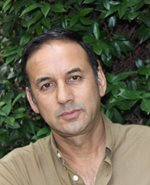 Ashraf Kagee is Distinguished Professor of Psychology at Stellenbosch University, co-Director of the Alan Flisher Centre for Public Mental Health, and a member of the Academy of Science of South Africa. He received his PhD in Counselling Psychology from Ball State University, completed a postdoctoral fellowship in the Department of Psychiatry at the University of Pennsylvania School of Medicine, and a Master of Public Health at the University of Cape Town. His work is broadly located at the nexus of psychology and public health. His research has focused on common mental disorders among persons living with HIV and the psychological and structural factors influencing adherence to antiretroviral therapy (ART). With over 200 scientific publications to date, Professor Kagee has been awarded research grants from the South African Medical Research Council, the National Research Foundation, the British Academy, the Guggenheim Foundation. He has also been a co-investigator on several NIH-funded studies. From 2012 to 2017 Professor Kagee served on a working group of the World Health Organization tasked with developing diagnostic guidelines for stress-related disorders for the forthcoming edition of the International Classification of Diseases. He is a member of the Board of Trustees of the Trauma Centre for Survivors of Violence and Torture in Cape Town and does capacity building work at the Gaza Community Mental Health Centre in Gaza, Palestine.
Ashraf Kagee is Distinguished Professor of Psychology at Stellenbosch University, co-Director of the Alan Flisher Centre for Public Mental Health, and a member of the Academy of Science of South Africa. He received his PhD in Counselling Psychology from Ball State University, completed a postdoctoral fellowship in the Department of Psychiatry at the University of Pennsylvania School of Medicine, and a Master of Public Health at the University of Cape Town. His work is broadly located at the nexus of psychology and public health. His research has focused on common mental disorders among persons living with HIV and the psychological and structural factors influencing adherence to antiretroviral therapy (ART). With over 200 scientific publications to date, Professor Kagee has been awarded research grants from the South African Medical Research Council, the National Research Foundation, the British Academy, the Guggenheim Foundation. He has also been a co-investigator on several NIH-funded studies. From 2012 to 2017 Professor Kagee served on a working group of the World Health Organization tasked with developing diagnostic guidelines for stress-related disorders for the forthcoming edition of the International Classification of Diseases. He is a member of the Board of Trustees of the Trauma Centre for Survivors of Violence and Torture in Cape Town and does capacity building work at the Gaza Community Mental Health Centre in Gaza, Palestine.
Dr. Gladys Mwiti
Founder and CEO of Oasis Africa
Kenya
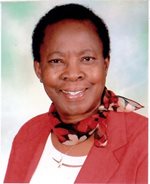 Dr. Gladys Mwiti is a Consulting Clinical Psychologist, Founder and CEO, Oasis Africa Center for Transformational Psychology & Trauma that houses an active psychological clinic and a robust corporate/organizational Employee Wellness Program. Author of five books, numerous journal articles and book chapters, Dr. Mwiti is an internationally preferred speaker. She is immediate past Chairperson of the Kenya Psychological Association (KPA); Interim Chairperson of the Kenya Society for Traumatic Stress Studies; Immediate past Member of the Board of Directors for the International Society for Traumatic Stress Studies (ISTSS); Co-Chair, Lausanne Congress for World Evangelization Mental Health and Trauma Issue Group; member, ChildFund Board, Kenya; and member, Langham Partnership International Council. A recipient of several international awards in scholarship, Dr. Mwiti has spent the past 20-30 years mobilizing, training, equipping and dispersing the mental health teams that responded to major incidences around the world, including the Westgate Mall Attack (2015), Nairobi USA Embassy bombing (1998) and Rwanda Genocide (1994); rolling out models, best practices and success measures.
Dr. Gladys Mwiti is a Consulting Clinical Psychologist, Founder and CEO, Oasis Africa Center for Transformational Psychology & Trauma that houses an active psychological clinic and a robust corporate/organizational Employee Wellness Program. Author of five books, numerous journal articles and book chapters, Dr. Mwiti is an internationally preferred speaker. She is immediate past Chairperson of the Kenya Psychological Association (KPA); Interim Chairperson of the Kenya Society for Traumatic Stress Studies; Immediate past Member of the Board of Directors for the International Society for Traumatic Stress Studies (ISTSS); Co-Chair, Lausanne Congress for World Evangelization Mental Health and Trauma Issue Group; member, ChildFund Board, Kenya; and member, Langham Partnership International Council. A recipient of several international awards in scholarship, Dr. Mwiti has spent the past 20-30 years mobilizing, training, equipping and dispersing the mental health teams that responded to major incidences around the world, including the Westgate Mall Attack (2015), Nairobi USA Embassy bombing (1998) and Rwanda Genocide (1994); rolling out models, best practices and success measures.
Return to Top
CONNECT: Asia
Wednesday, 3 November, 8.00pm - 9.00pm U.S. Eastern
HOST:
Jinhee Hyun, PhD

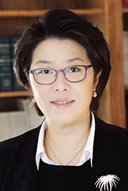 Jinhee Hyun received a bachelor’s and a master’s degree in social work and a Ph.D. in Social Welfare majoring in clinical social work at Ewha Womans University, Korea in 2007. From 1996 until 1998, she worked at Seoul Red Cross Hospital and received her license as a mental health social worker. Until 2007 she worked as a clinical social worker at US Army Hospital in Korea, where her primary responsibility was to provide psychotherapy for soldiers who returned home from war with PTSD, and for the sexual assault, domestic violence, and child abuse victims and their family members. She has been at the Department of Social Welfare, Daegu University as a professor since 2007. In 2014, she stayed at the School of Social Work, the University of Illinois at Urbana-Champaign as a visiting scholar. She have been serving as head of the psychological support team within the counseling program of Gyeongbuk Fire Service Headquarters from 2019. Currently she is the President of the Korean Society for Traumatic Stress Studies (KSTSS) for the 2020-2021 term.
Jinhee Hyun received a bachelor’s and a master’s degree in social work and a Ph.D. in Social Welfare majoring in clinical social work at Ewha Womans University, Korea in 2007. From 1996 until 1998, she worked at Seoul Red Cross Hospital and received her license as a mental health social worker. Until 2007 she worked as a clinical social worker at US Army Hospital in Korea, where her primary responsibility was to provide psychotherapy for soldiers who returned home from war with PTSD, and for the sexual assault, domestic violence, and child abuse victims and their family members. She has been at the Department of Social Welfare, Daegu University as a professor since 2007. In 2014, she stayed at the School of Social Work, the University of Illinois at Urbana-Champaign as a visiting scholar. She have been serving as head of the psychological support team within the counseling program of Gyeongbuk Fire Service Headquarters from 2019. Currently she is the President of the Korean Society for Traumatic Stress Studies (KSTSS) for the 2020-2021 term.
Return to Top
CONNECT: Australia and New Zealand
Tuesday, 3 November, 8.00pm - 9.30pm U.S. Eastern
HOST:
Associate Professor Eva Alisic (@EvaAlisic)
University of Melbourne
Australia
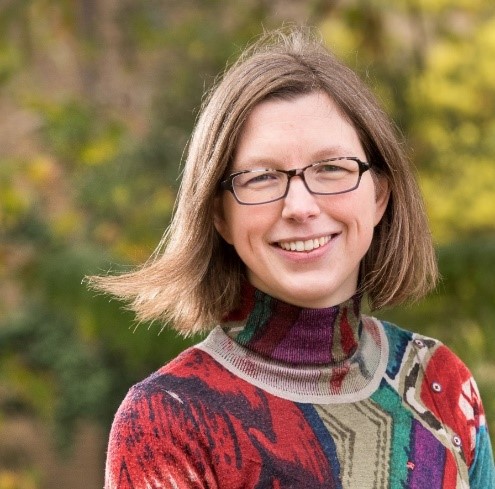 Eva Alisic is Associate Professor, Child Trauma and Recovery, at the University of Melbourne’s School of Population and Global Health, in Australia. Aiming to improve support for young people and their families, her focus is on mental health and resilience in the face of violence at home, disaster, and war. Her team uses both qualitative and quantitative methods, and collaborates extensively with people with lived experience, policy makers, and artists. Eva has co-developed the Africa and ASEAN Science Leadership Programs, and has a keen interest in global mental health. She blogs at trauma-recovery.net and her Twitter name is @EvaAlisic.
Eva Alisic is Associate Professor, Child Trauma and Recovery, at the University of Melbourne’s School of Population and Global Health, in Australia. Aiming to improve support for young people and their families, her focus is on mental health and resilience in the face of violence at home, disaster, and war. Her team uses both qualitative and quantitative methods, and collaborates extensively with people with lived experience, policy makers, and artists. Eva has co-developed the Africa and ASEAN Science Leadership Programs, and has a keen interest in global mental health. She blogs at trauma-recovery.net and her Twitter name is @EvaAlisic.
Return to Top
CONNECT: Europe
Wednesday, 3 November, 8.00am – 9.30am U.S. Eastern
HOST:
Professor Monique Pfaltz (@MPfaltz)
University of Zurich
Switzerland
 Monique Pfaltz is a trained psychotherapist and clinical and experimental researcher. She is an assistant professor at the University of Zurich, Switzerland, and her research assesses socio-emotional processes (e.g., interpersonal boundary setting, regulation of closeness and distance, emotional reactivity, facial emotion recognition) in healthy individuals and patients affected by traumatic stress, with a focus on childhood maltreatment (abuse and neglect). As part of the Global Collaboration on Traumatic Stress, she is currently leading a theme on the socio-emotional development across cultures. Findings of the corresponding projects shall provide a basis for the development of interventions improving social functioning and thus health and well-being of those affected by childhood maltreatment. Dr. Pfaltz is a member of the editorial board of the European Journal of Psychotraumatology and of the Journal of Traumatic Stress and co-organizer of the Annual Zurich Conference on Psychotraumatology.
Monique Pfaltz is a trained psychotherapist and clinical and experimental researcher. She is an assistant professor at the University of Zurich, Switzerland, and her research assesses socio-emotional processes (e.g., interpersonal boundary setting, regulation of closeness and distance, emotional reactivity, facial emotion recognition) in healthy individuals and patients affected by traumatic stress, with a focus on childhood maltreatment (abuse and neglect). As part of the Global Collaboration on Traumatic Stress, she is currently leading a theme on the socio-emotional development across cultures. Findings of the corresponding projects shall provide a basis for the development of interventions improving social functioning and thus health and well-being of those affected by childhood maltreatment. Dr. Pfaltz is a member of the editorial board of the European Journal of Psychotraumatology and of the Journal of Traumatic Stress and co-organizer of the Annual Zurich Conference on Psychotraumatology.
Return to Top
CONNECT: North America
Tuesday, November 2, 5.30pm - 7.00pm U.S. Eastern Time
HOST:
Krithika Prakash
Eastern Michigan University
United States

Krithika Prakash is currently a fourth-year doctoral student in the Clinical Psychology PhD program at Eastern Michigan University (EMU), USA. Her primary research interests lie in understanding the impact of trauma and discrimination faced by marginalized, underserved, and under-researched communities. Specifically, she is interested in seeing how this trauma and discrimination can lead to use and misuse of substances, and how this can further lead to difficulties in everyday functioning.
As part of conducting sound research, Krithika believes research involves meticulous theory-driven methodology, culturally sensitive data analysis and interpretation, and advocacy of open science. In line with these values, she is involved in two projects within the Global Collaboration on Traumatic Stress: 1) assessing the attitudes and practices toward Findable, Accessible, Inter-operable, and Reusable (FAIR) data within trauma researchers, in collaboration with Dr. Nancy Kassam-Adams and Dr. Talya Greene, and 2) assisting with collecting data in the USA to identify socio-emotional consequences of child maltreatment, as part of a multi-country project led by Dr. Monique Pfaltz. Krithika is also the student co-chair of the Research Methodology Special Interest Group and was instrumental in developing the ISTSS COVID-19 measures repository at the beginning of the pandemic.
Return to Top
CONNECT: South America
Friday, 4 November, 12.00pm – 1.30pm U.S. Esatern
HOST:
Dr. Andrés Fresno Rodriquez (@andresfresno)
Universidad de Talca
Chile
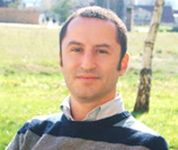 Andrés Fresno, PhD and clinical psychologist, is associate professor psychology at the University of Talca, Chile. Since 2010, he has dedicated himself to the study of traumatic stress. He has conducted research on the relationship between child abuse, attachment and PTSD, and he has trained in therapies for the treatment of PTSD (BEPP, RT, EMDR, REWIND, CBT). He has also actively participated in the Spanish translation of therapy manuals for PTSD (BEPP, RT, CBT), as well as for the evaluation of PTSD and complex PTSD. He is a founding member and current vice president of the Chilean Association of Traumatic Stress (ACET). His areas of interest are PTSD, complex PTSD, emotional regulation, child abuse and attachment.
Andrés Fresno, PhD and clinical psychologist, is associate professor psychology at the University of Talca, Chile. Since 2010, he has dedicated himself to the study of traumatic stress. He has conducted research on the relationship between child abuse, attachment and PTSD, and he has trained in therapies for the treatment of PTSD (BEPP, RT, EMDR, REWIND, CBT). He has also actively participated in the Spanish translation of therapy manuals for PTSD (BEPP, RT, CBT), as well as for the evaluation of PTSD and complex PTSD. He is a founding member and current vice president of the Chilean Association of Traumatic Stress (ACET). His areas of interest are PTSD, complex PTSD, emotional regulation, child abuse and attachment.
Return to Top